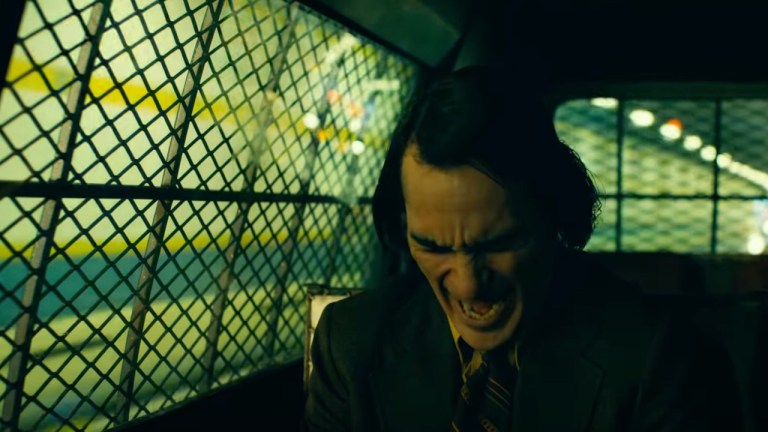Joker 2 Director: Arthur Fleck Will ‘Never Become’ the Comic Book Mastermind
Joker: Folie à Deux's Todd Phillips has unique plans for the title character, and they apparently have little to do with "the Clown Prince of Crime."

From his very first appearance in 1940’s Batman #1, the Joker has been an evil genius, a man whose madness allowed him to concoct plans that no one could anticipate. But the most recent Oscar-winning version of the character (and it’s weird to realize there’s more than one!) couldn’t be more different from that idea. Todd Phillips, director and writer (with Scott Silver) of 2019’s Joker, and maestro of the upcoming Joker: Folie à Deux, recently went so far as to explain the difference between Arthur Fleck, the character he and Joaquin Phoenix have developed for the screen, and the classical image of Batman’s arch-nemesis.
Whereas nearly every other Joker has been fairly described as “the Clown Prince of Crime,” Phillips told Empire magazine that “we would never do that… Because Arthur clearly is not a criminal mastermind. He was never that.” As portrayed by Phoenix, Arthur Fleck is a deeply disturbed man who becomes the Joker almost reluctantly. It’s presented as a consequence of losing his support system and this man getting fed up with the constant embarrassment and degradation inflicted by an uncaring society.
Yet, that doesn’t seem to prevent Arthur’s Joker from becoming something bigger than just a lonely, pathetic man. As seen at the end of Joker, Arthur starts a movement when, dressed as the Joker, he kills talk show host Murray Franklin (Robert De Niro) on live television. Joker: Folie à Deux picks up on that movement, which Phillips finds compelling.
“Arthur has become this symbol to people,” Phillips explained. “This unwilling, unwitting symbol now paying for the crimes of the first film, but at the same time finding the only thing he ever wanted, which was love. That’s always what he’s been about, even though he’s been pushed and pulled in all these directions. So we tried to just make the most pure version of that.”
From this description, it doesn’t seem like Phillips is backing away from one of the biggest criticisms of the first film: that it reflected some of the views of hateful young men who have a tendency to become radicalized—albeit from online and often far-right social media movements, it should be noted, more so than Hollywood movies.
That said, the sequel will break from the angry young man stereotype in one notable way. Joker: Folie à Deux is a musical. And a love story.
For Phillips, the musical aspects build out of Arthur’s loneliness and his connection to his mother, a connection he reforges with Harley Quinn (Lady Gaga). “Arthur grew up hearing his mother play these songs on the radio,” Phillips explained. “He’s not a singer, and he shouldn’t sound like a professional singer. He should sound like somebody that’s taking a shower and just bursts out into song.”
Taken together, it seems that Phillips is giving audiences a Joker who sings off-key showtunes instead of planning elaborate and sadistic plots. However, Phillips also tried to distinguish the first Joker from the usual comic book movie fare. And yet, the finished film included Thomas Wayne, Bruce Wayne, Alfred Pennyworth, and even the standard image of the Waynes going down Crime Alley, albeit without the usual shot of Martha’s broken pearl necklace. Will Joker: Folie à Deux indeed offer a radical different version of the Joker? Or will it end up being another version of the familiar Clown Prince of Crime? Phillips seems to already be confident in going a different way.
Joker: Folie à Deux puts on a happy face in theaters on Oct. 4, 2024.
